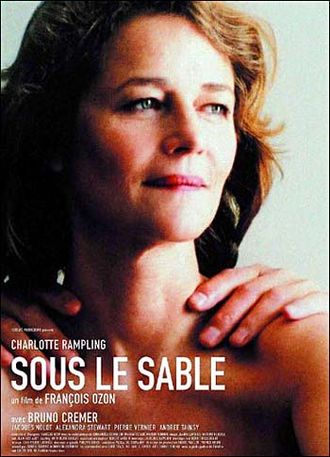![]()

Under the Sand
The burial of Europe
On a Saturday evening, two days after the UK's Brexit vote, Mary and I watched François Ozon’s film Under the Sand. It is the story of a long and comfortable marriage in which the husband suddenly disappears into the ocean during a beach holiday. His wife – the remarkable Charlotte Rampling, who carries the film almost single-handedly – refuses to accept his disappearance and probable death, retreating into a private world in which he continues to exist and constantly returns. Her fantasies are so realistically incorporated into the cinematography that we wondered whether the scenes were flashbacks, until it finally dawned on us that we had been deceived as convincingly as the heroine herself.
It was a sadly appropriate film to watch on the occasion of the death of the integrated Europe we have so dearly loved. How could Britain dissolve a marriage which had brought it so much? Forget the political infighting, the Eurocrats – what country, what association of countries has ever been remotely incurrupt in its conception or its execution? The British Empire? Post-revolutionary France? The United States, whose constitution was designed to accommodate both free and slave states? Such national and international associations, however politically impure, serve as occasions for new intellectual and cultural unions which are as productive as the interbreeding of biological species.
As Mary and I watched the film, we thought of the years we had spent travelling and communicating with our European fellow-humans. Tours with Electric Phoenix had brought us musicians together, not only with Western Europe, but with the Warsaw Pact countries which ultimately joined Europe, post-Glasnost. In Rostock, East Germany, we played to a packed-out auditorium, who had come expecting a pop group, but cheered us to the rafters and brought us back the following year.
Over the years my travels, both with musical tours and on holidays with Mary, took me so frequently to Paris that the reviews of Paris bistros on my website well exceed a hundred. And then there were the two tours of Normandy gardens that I carefully put together, in which we travelled by campervan, eating in the evening at nearby Michelin-recommended restaurants and staying overnight in their parking lots or in a nearby street, thus obviating the necessity for alcoholic moderation.
As I write, I am as immersed in the past as Charlotte Rampling. When (if) we return to France, it will be as foreigners, and with reduced resources, both financial and psychological. What will the pound be worth? Indeed, as representatives of a destructive country, what will we ourselves be worth? Britain has voted to destroy European unity, which, however faulty, has kept its cities unbombed for the longest period in its history. We who have brought this about may well be hated even more than the useful but unappreciated and essential immigrants in Britain. Will we wish that we had stayed at home?